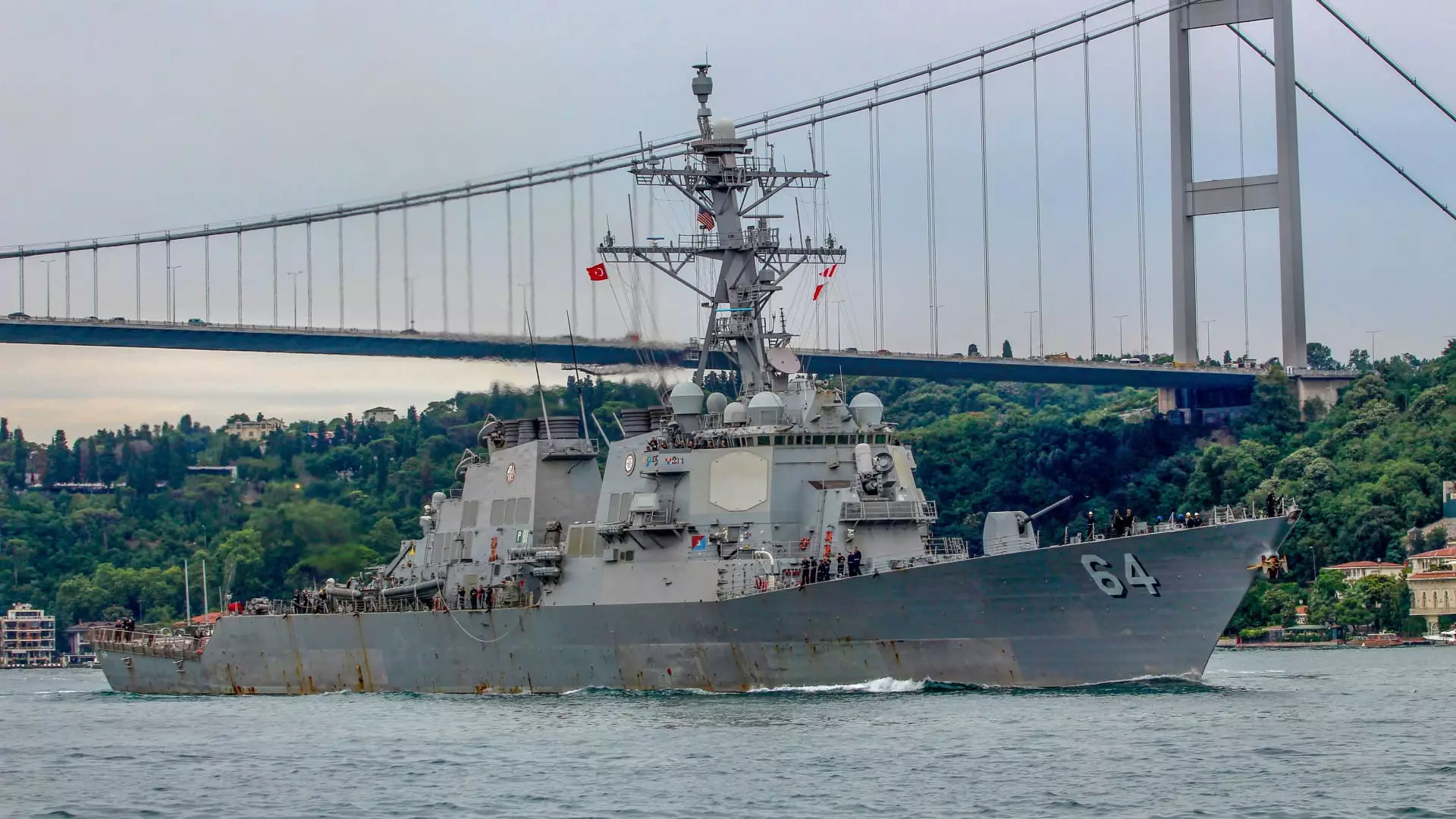The Red Sea, known as one of the world’s busiest shipping routes, has recently become a battleground for Houthi rebels in Yemen. These rebels have launched a series of attacks on vessels, posing a significant threat to international commerce and maritime security. In response to this escalating situation, warships from the United States and the United Kingdom have taken decisive action to protect commercial ships and ensure the free flow of global trade.
On Saturday, a U.S. warship successfully shot down 14 suspected attack drones over the Red Sea. These drones, launched from Houthi-controlled areas of Yemen, were intercepted without causing any damage to the nearby ships or resulting in any reported injuries. This swift and effective response by the U.S. Central Command demonstrates the commitment to safeguarding commercial interests in the region.
In a significant show of force, the Royal Navy joined the battle by deploying HMS Diamond. This destroyer fired a Sea Viper missile that destroyed a drone targeting merchant shipping. This action marks the first time since the 1991 Gulf War that the Royal Navy has shot down an aerial target in an offensive operation. U.K. Defense Secretary Grant Shapps emphasized the importance of repelling these attacks to protect global trade.
The ongoing conflict between Israel and Hamas further compounds the danger faced by commercial ships in the Red Sea. The Houthi rebels, similar to Hamas, are backed by Iran. The rebels launched a barrage of drones towards the port city of Eilat in southern Israel. Additionally, Egyptian air defense intercepted a “flying object” off the Egyptian resort town of Dahab on the Red Sea. These incidents highlight the widening scope of the conflict and its potential ripple effects on global shipping.
The threat to international trade has intensified as container ships and oil tankers, flagged to countries like Norway and Liberia, have come under attack or faced missile fire while traversing the waterway between Africa and the Arabian Peninsula. Earlier this month, Houthi-controlled Yemen launched ballistic missiles at three commercial ships in the Red Sea. The U.S. military successfully shot down three drones during this assault.
To effectively safeguard the free flow of global trade, international cooperation is crucial. The deployment of HMS Diamond by the Royal Navy, alongside vessels from the U.S., France, and other countries, demonstrates a collective effort to address this pressing issue. By acting as a deterrent, these warships aim to prevent further attacks and ensure the safety of commercial ships navigating through the Red Sea.
The impact on the shipping industry has already been felt, with major companies taking precautionary measures. CMA CGM, a French container shipping line, has ordered all its vessels scheduled to pass through the Red Sea to pause their journey in safe waters. Maersk, the world’s largest shipping company, has also instructed its vessels planning to pass through the Bab el-Mandeb Strait to halt their journeys. Hapag-Lloyd, a German-based shipper, has decided to pause all container ship traffic through the Red Sea.
The recent engagement of suspected attack drones by U.S. and U.K. warships signals a determination to protect international commerce and maritime security in the Red Sea. The threat posed by Houthi rebels in Yemen and the wider conflict involving Israel and Hamas necessitate a coordinated and resolute response. Through the deployment of naval assets and the cooperation of global shipping companies, efforts can be made to secure this vital trade artery and ensure the uninterrupted movement of goods across the world.

Leave a Reply